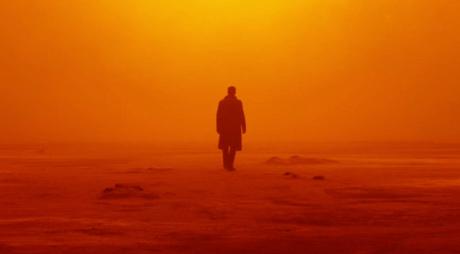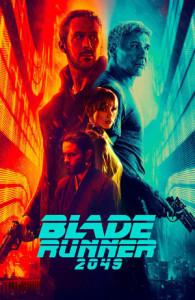
It's year 2049-30 years following the events in the original Blade Runner (1982). A new story embarks as a next-gen 'Replicant', now working as a 'Blade Runner', retires an older 'Replicant' model and unravels a decade-long mystery in the process.
Blade Runner 2049 comes as a genre-bending late follow-up, which appears as a slow-burning detective story to reveal answers to both philosophical and 'physical' mystery presented in the premise. Denis Villeneuve's cyberpunk sequel deliberately yet subtly mirrors Ridley Scott's original in terms of plot and general elements, but confidently delves into a new territory at the same time. All of those are wrapped exquisitely in one of the most stunning 164 minutes in the history of life.
The highlight of Blade Runner 2049 is how Villeneuve ( Arrival) teams up with his frequent cinematographer, Roger Deakins ( Sicario, Prisoners) in making an exquisite dystopian world upon slick script penned by the first Blade Runner writer, Hampton Fancher, and the biggest deal of 2017, Michael Green ( Logan, American Gods, Alien: Covenant). Not only that the dystopian vistas look as if they've shot for one-perfect shot materials, the details of Blade Runner world engages with the story congruently. Although Hans Zimmer and Benjamin Wallfisch's scoring could not entirely channel Vangelis' cyber-synthcore, world-building in 2049 goes hand in hand with the original film's universe.
Villeneuve presents 2049 with super slow pace, which might feel like contemplating or meditating pace. The Quebecois director heightens his attentions to details of the world along with expressions, which often poses more revelations compared to some expositions. Fans of Villeneuve's filmography and fans of Blade Runner should have anticipated this from the moment the director stepped in this project.
As the leading key in 2049, Ryan Gosling portrays Officer K, the Blade Runner who unravels the secret. Gosling convincingly channels the tranquility he once showed in Driver with some touch of the so-called sad Gosling (from Lars and the Real Girl and La La Land) to create a robotic presence, which appears to be more haunting than any man has shown in this film. K's investigation in 2049, at some points, mirror Rick Deckard's similar mission in the first film. Deckard (Harrison Ford) himself returns not merely for a reunion's sake; he comes back for the greater purpose, which leads his crossing path with K and, somehow, nudges the dormant fan theories regarding his Schrodinger's status left untangled. In this sequel, Ford returns in a 'non-Harrison Ford typical reunion' (see Indiana Jones and the Kingdom of Crystal Skulls or Star Wars: The Force Awakens).
Other casts appear in 2049 only come to boldly state this sequel, even a stand-alone one, stands firmly under shades of Blade Runner. Jared Leto's Niander Wallace appears as a more god-obsessed incarnation of Tyrell, while Sylvia Hoeks's Luv, the henchmen, somehow resembles Rutger Hauer's Roy Batty in the 1982 film despite the different outcome. Even, you can find the Rachael figure in Ana de Armas' Joi, a digital love interest.
While 2049 might bear many elements and reconstructs them into a different construct, this sequel is highly digestible. Villeneuve has gently and subtly guided audiences, even those who never heard of Blade Runner, with the immaculate script, into the world of Blade Runner. One should only deal with the duration and the pace to actually enjoy this sequel as one of the most satisfying sequel ever made.
In the end, Blade Runner 2049 makes a magnificent sequel to a philosophical cyberpunk classic about the real meaning of being human. It completely settles in as a proper Blade Runner sequel and among Villeneuve's elegant filmography.
Blade Runner 2049


Mystery, Sci-Fi, Thriller Directed by: Denis Villeneuve Written by: Hampton Fancher, Michael Green Starred by: Harrison Ford, Ryan Gosling, Ana de Armas, Harrison Ford, Ryan Gosling, Ana de Armas Runtime: 164 mins Rated R
